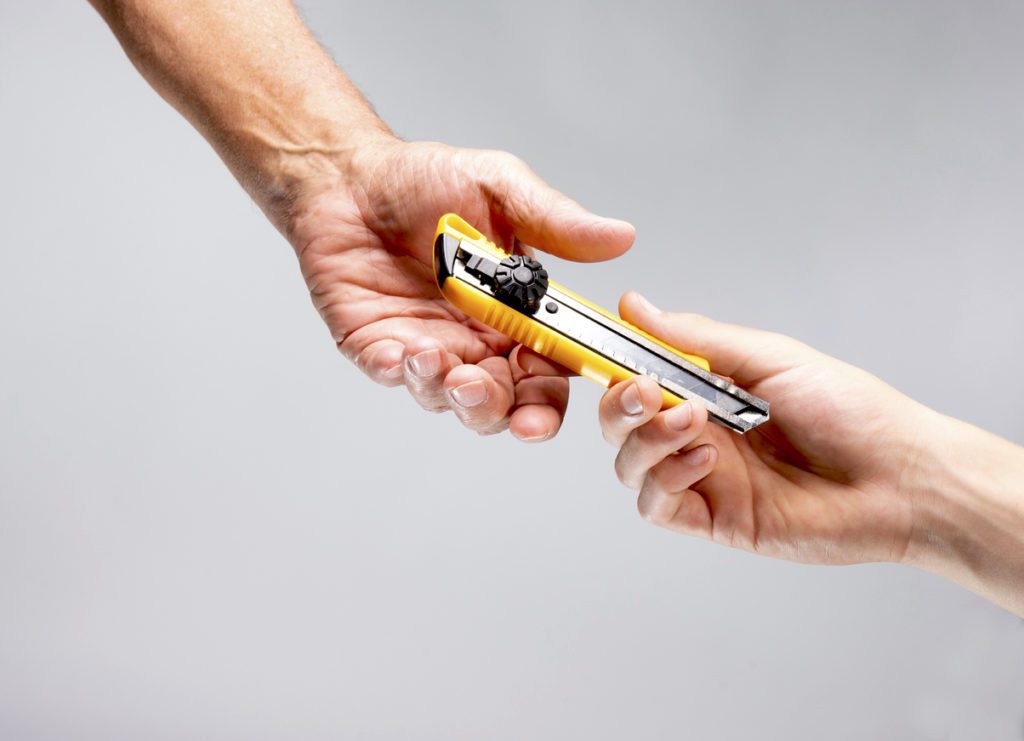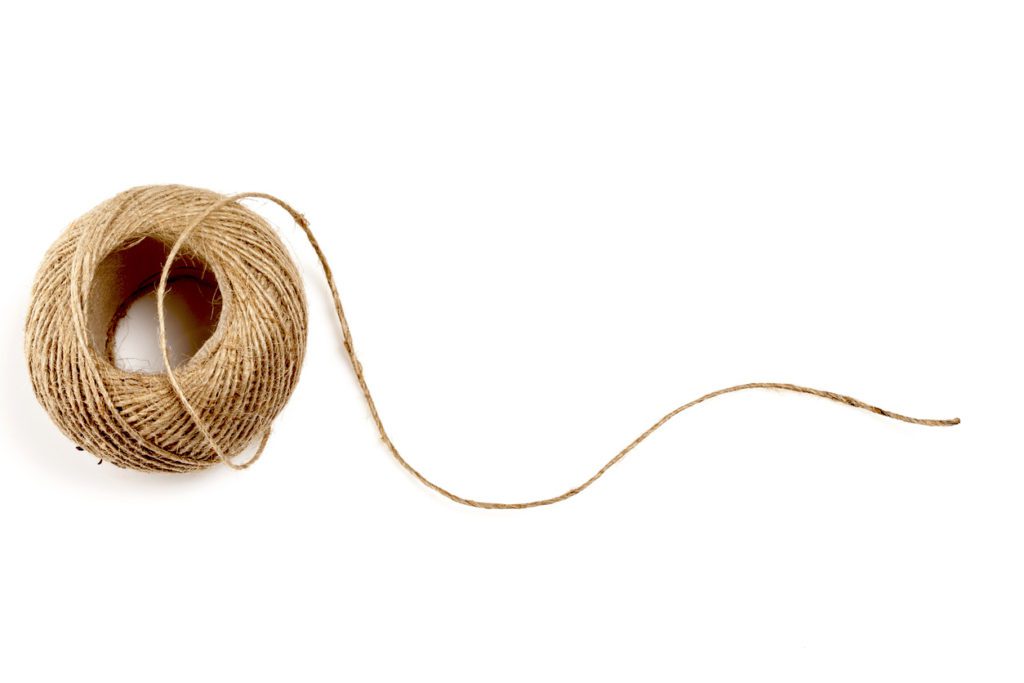Your Weakness Saves You, Part 2
08/01/2022Our days are filled with the kinds of events like the account of the shattered pot in Part 1. Here is another.
The water dispenser in our kitchen breaks — for the second time. Karen and I take it to the vendor, for it is under the strength of the warranty. While we are at the store — one of the largest of its kind in the Middle East — we catch sight of the firm’s international executives touring the aisles with iPads and floorplans. They are leaders we have been praying for, leaders from whom emanates a coercive spirit that crushes their several hundred local employees with a paralyzing and backbiting fear. (We know this from the staff themselves and the appeal from one of them, a believer from Malawi, to intercede.) We pray under our breath directly in their presence as we pass by them, and, after a moment, as they turn and pass by us.
They do not know. But we know. Weakness has turned to strength.
Then, no sooner has this taken place, when, for the first time, Karen and I meet Mary Jane, a Philippino floor sales clerk. She is helping us locate twine (the twine I had used to batten down the canopy was weathered and weak) and a box cutter to replace the one which I, in my weakness, had lost. The box cutter happens to be on discount today, my unintended visit aligning with a good deal on aisle 11.
But there is more than a good deal on aisle 11. There is good fruit. The Holy Spirit descends on aisle 11 in the midst of the three us. A prophetic word is spoken to Mary Jane. She clings to us in tears. Then the cloud lifts, we depart the store, and Mary Jane faces the uncertain future with confidence that the Lord will shelter her from the turbulence of a demon-driven corporate world. (Psalm 31:19-21)
None of this would have happened if my water dispenser had not broken again. None of this would have happened if I had not lost my box cutters. To be sure, strength played a part: the warranty served its purpose. But it was weakness that initiated the whole course of fruitful events. Strength was only a servant to weakness in this encounter.

This is how weakness (if we let it) can drive us through the crowd of cares and distractions until we — like the hemorrhage-weakened woman in the Capernaum throng — reach the One who knows we are near. (Matt 9:20-22) We feel the encounter. We experience His life-giving grace. And we are healed of our wasted efforts at being strong. Now we know we are not invisible. Now we know we are not alone. Now we know we have a friend.
I could go on and on. Time forbids speaking of the people from India, Pakistan, Nepal, Burma, Lebanon, Syria, Indonesia, the Emirates, Russia, Egypt, Kenya, Uganda, Afghanistan, Iran, Algeria, etc., who are known to me, and I to them, because some sort of unfortunate limitation bent my life circuit to connect me with them.
And in that connection, there is grace. The carpenter of Galilee is no longer a dusty, distant figure. He is present, disguised in the cloak of the weakness that brought us together.
But He does not remain cloaked. Sooner or later, He pulls back the hood and a face is revealed. His face. The face of the one who “was crucified in weakness, yet He lives by the power of God. For we also are weak in Him, but we shall live with Him by the power of God toward you.” (II Corinthians 13:4)
We discover the brilliance of our Lord in how He works with weakness, but He is no stranger to strength either. He works with that too. Most of the tasks of my life, in fact, are oriented toward consolidating and improving my strength. I budget my finances. I maintain my Honda. I brush my teeth. Strength, like weakness, is a stewardship we carry out by faith, as the sage Sirach says, “Believe in Him, and He will help you, make your ways straight, and hope in him.” (Sirach 2:6)
Indeed, we are commanded to “be strong.” (I Corinthians 16:13) And yet, we are to be strong “in the Lord,” (Eph 6:10) — a Lord who seems to be just as skillful with weakness as He is with strength, and, if anything, seems to prefer weakness to strength for the reasons we have touched on above.
Now that we have grasped this treasure and gazed upon the glory of it, we may very well conclude, “Well then, Kurt, let us actively become weak! Look what happened in the shattering of one pot; go and shatter ten more! Look what happened in the failure of your water dispenser; go and undo the plumbing of the whole kitchen!” But it does not work that way, for, as we have said, we are not the center of our own story. He is.
But if you do want to take the paradigm of weakness further and find more joy in it, perhaps you can do so by looking at the virtues of diligence and self-discipline as forms of “weakness.” How so? Because diligence is always composed of small, incremental actions, any one of which, in and of itself, is insignificant — “weak” — such that if it were absent, no noticeable difference would be discerned. Just study the way of the ant and the bee. And yet, the cumulative effect of diligence is prevailing influence. “Diligent hands will rule.” (Proverbs 12:24) That is to say, “Hands that embrace the day-to-day, time consuming weakness of little things will, in the end, attain more than the one who sought quick fixes, checkouts, and shortcuts.”
And how is the virtue of self-discipline a weakness? Only in this one essential thing. Self-discipline is a consistent commitment to say “no” to many immediate things in order to attain the “one thing” you willingly suffer to win in the long term. Therefore the immediate result of self-discipline is that, in the moment, we accomplish less than we might hope in all the less important, but often good, things that compete with the greater, better long-term goal. Yet in the same way the athlete has his eye on the championship, the many “losses” in the now are completely eclipsed by the prize we attain then. It is in this sense that self-discipline may be defined as “being weak in the moment to be strong for a lifetime.”
If we are committed to the voice of the Lord as He speaks through His Scriptures, the Holy Spirit, and our spiritual fathers, we will inevitably encounter His preference for weakness. For example, He may lead you to give lavishly to a person whose hard work is simply not enough to make ends meet. He may lead you to move to a less desirable location. He may touch on the sacred cows of career and your children’s education. He may, gently but firmly, take issue with your counterargument that it is for love’s sake that you prefer a better part of town or better career or better children’s education. And once you have argued your point, He remains looking you in the eye, silent, unwavering, overflowing with love, leading you into weakness.
For only there, in weakness, will you encounter Him. Only there will your life purpose be perfected. Friendship with Him. Faith your children may return to after their prodigal sojourn. Fruit among nations.
So there you have it. This is how weakness saves you.
Let us therefore, be content with the Lord’s skill and power in working with weakness, be they the weaknesses that have come upon us by the choices of others, or be they the weaknesses we brought upon ourselves through the unforeseen consequences of our actions. If we do so, we may find ourselves increasingly familiar with the long lineage of the faithful who have gone before us, not many of whom were wise, powerful, or influential (I Corinthians 1:26), and yet, whoever they were, “their weakness was turned to strength” because of their trust in Him. (Hebrews 11:34)
© Kurt Mähler

- For the original quote, “Your weakness saves you,” see Fr. Freeman’s blogpost, on his website, Glory to God for All Things.
Return to Part 1 of “Your Weakness Saves You.”
Tagged as: faith, joy, weakness, wisdom